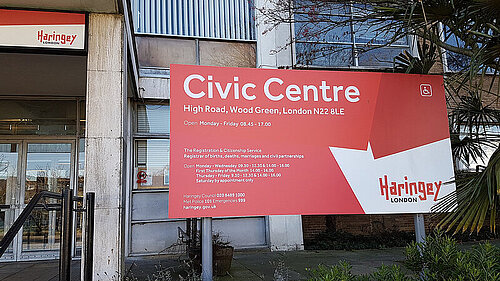Labour lead Haringey to brink of bankruptcy

Haringey has been forced to go cap-in-hand to the government to apply for approval for the “Exceptional Financial Support” scheme in advance of setting next year's budget in March. This would allow the council to: use up the money normally legally earmarked for investment to run day to day services; receive a loan from central government to balance the budget; or sell off assets to do so, if required.
This news comes hot on the heels of shocking new figures which revealed a budget gap of over £37 million after just six months of the year - representing more than 10% of the councils total annual budget, and which must legally be closed by March. What’s more, a further gap of £32 million is forecast for next year.
Collectively this means the council has to close a shortfall of almost £70 million over the next 18 months to avoid actually using the “Exceptional Financial Support” if the application is approved by government.
Haringey has not typically been able to close previous in-year savings gaps: for instance a £20.9 million forecast gap this same time last year resulted in an end-of-year overspend of £19.2 million, which had to be dealt with through a significant raid on reserves.
However, previous use has left Haringey’s total usable reserves for the year at only £18.4 million, which is, according to the council’s new Director of Finance “an unsustainable level.” She went on in her November report to Cabinet to say that “any use of reserves to balance the budget next year is not a viable option.”
Cllr Luke Cawley-Harrison (LD-Crouch End), Leader of the Opposition on Haringey Council, said:
“All councils are facing tough financial times at the moment, but the majority have not exposed themselves to the size of budget gaps displayed in Haringey. The situation is shocking and staggering, but not wholly unexpected. We have warned for years that Labour needed to take the management of their finances far more seriously, but the council leadership has refused to face up to reality, borrowing millions to fund their capital programme as interest rates skyrocketed; poor management of contracts, assets and data; and chronically failing to meet savings targets and instead balancing budgets by using up reserves.
“Turning to the Government should not be seen as a magic fix: it is a last resort, piling even greater pressure on budgets, often resulting in even more borrowing to repay through further cuts in a vicious cycle reminiscent of a pay-day loan. I really hope Haringey Labour is able to clean up their mess over the next few months, as if they can’t it will be residents who pay the price.”